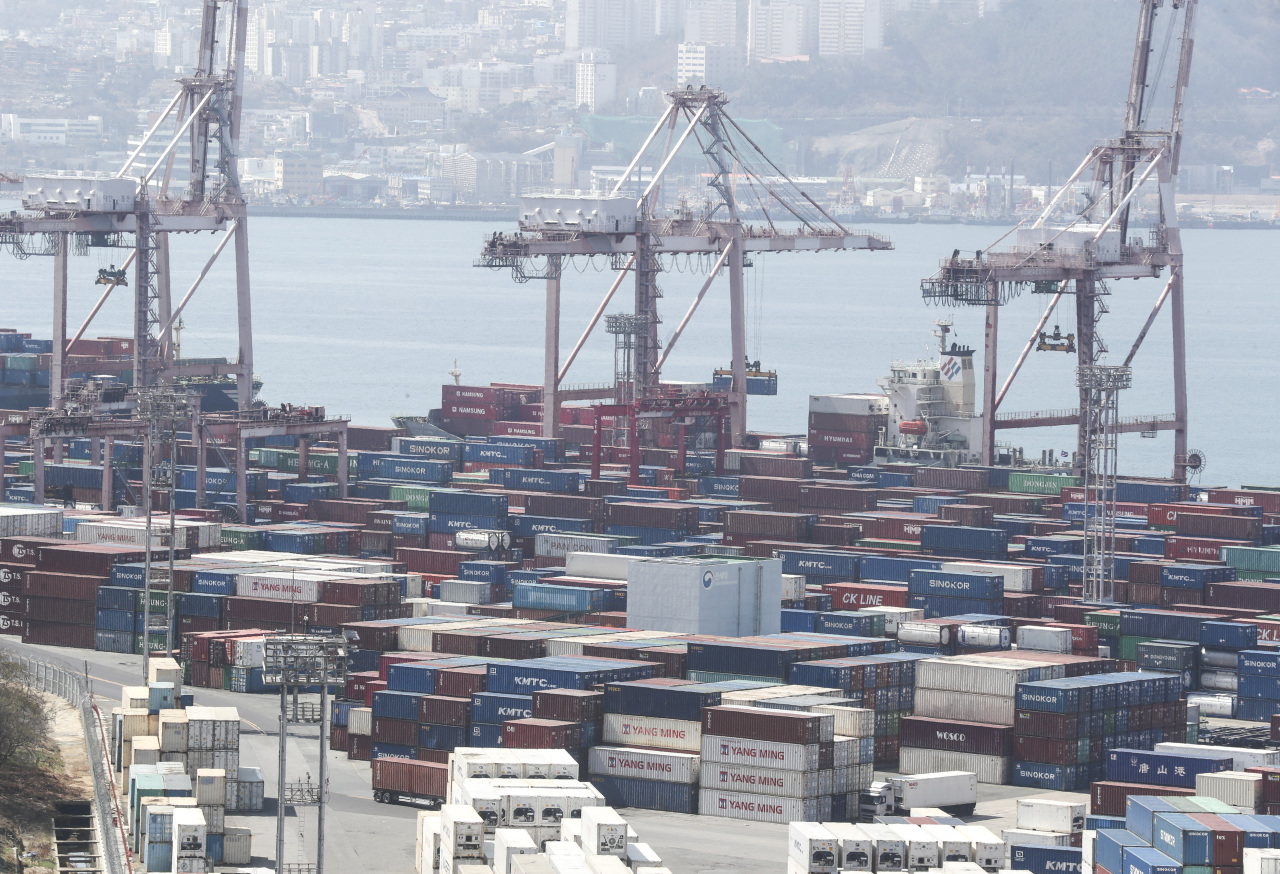
A view of the container terminal at Busan Harbor on Tuesday (Yonhap)
SEJONG -- The price of imported grains reached the highest in more than eight years, fanning hikes in the price tags of processed food and fodder in the nation, state data showed Wednesday.
According to the Korea Customs Service, the nation’s monthly grain imports came to 1.96 million metric tons, which is worth $758 million in February.
This indicates that the price per ton came to $386, up 26 percent from $306 a year earlier. Compared to $262 in February 2020, the growth posted 47.4 percent.
Data showed that the price of imported grains per ton climbed to the highest in 105 months since it peaked at $388 in May 2013.
Though the monthly price stayed under $300 in 2020 when COVID-19 initially hit the nation, it has continued to rise after exceeding the $300 mark in February 2021.
According to KCS officials, a glitch in global supply of wheat and corns have been reflected in high import prices.
The import price of wheat per ton reached $396 in February, which is higher by 37.3 percent compared to the previous year, and by 46.6 percent in the same month of 2020.
Imported corns posted a steeper growth, with the price climbing by 40.1 percent from 2021 and 63.4 percent from 2022 to $335 per ton as of last month.
The situation has brought about hikes in price tags of processed food among local food companies. Alongside the burden this poses on consumers, price growth in fodder products from the high prices of imported grains could aggravate the cost burden for local farmers.
Further, market insiders say that rising prices in imported grains will go on in the wake of the Ukraine-Russia war. Ukraine and Russia reportedly account for about 30 percent of global exports of wheat and barley, and 20 percent of global corn exports.
According to overseas news reports, Russia temporarily suspended exports of grains, including wheat, barley and corn. The Russian action is reportedly aimed at protecting its domestic food market amid global instability in grain prices.
An official of the Ministry of Agriculture, Food and Rural Affairs of Korea said that the government is taking countermeasures against the supply problem, which could include diversification of trade partners.
In this situation, concerns are growing over the possibility that consumer price growth in the nation will surpass the 4 percent mark in the coming months.
The climb in grain prices comes amid the situation that the spike in international crude prices has been fanning inflationary pressure in the local market, with gasoline and diesel prices continuously rising since early January.
The nation’s benchmark gasoline price exceeded the 2,000 won ($1.6) mark per liter on Tuesday, while it stayed at 1,623.79 won on Jan. 1.
According to Statistics Korea, the growth in consumer prices recorded over 3 percent for five consecutive months -- from October 2021 to February 2022.




![[From the Scene] Monks, Buddhists hail return of remains of Buddhas](http://res.heraldm.com/phpwas/restmb_idxmake.php?idx=645&simg=/content/image/2024/04/19/20240419050617_0.jpg&u=20240419175937)

